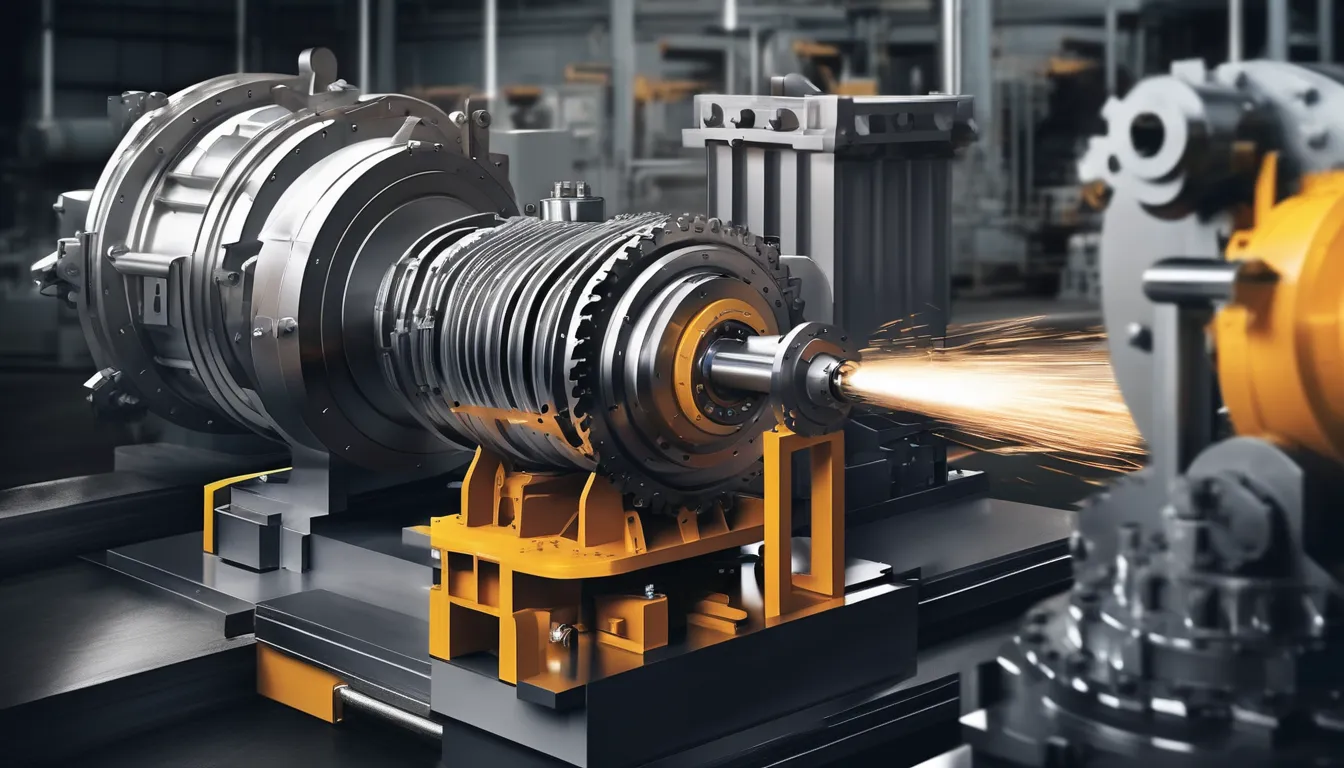When you’re evaluating gearbox manufacturers, you’ll want to focus on several critical factors that can significantly impact your project’s success. Quality assurance processes, production capabilities, and customer support services are key areas to consider. You’ll also need to weigh industry experience and cost against delivery timelines. Each of these elements plays a vital role in forming a reliable partnership. But how do you prioritize these factors to ensure you make the best choice? Let’s explore what truly matters in this decision-making process.
Quality Assurance Processes
When evaluating gearbox manufacturers, understanding their quality assurance processes is crucial. You want to ensure that the gearboxes you’re considering have undergone rigorous testing and meet industry standards.
Look for manufacturers who adhere to internationally recognized quality management systems, like ISO 9001. This certification demonstrates their commitment to maintaining high quality across all production stages.
Next, inquire about their testing protocols. A reliable manufacturer should conduct extensive inspections, including dimensional checks and material analysis, to verify that components meet specifications.
Make sure they perform functional testing as well, simulating real-world conditions to assess performance and durability.
It’s also wise to consider the manufacturer’s track record. Investigate their history of quality incidents or product recalls, as this can reveal how seriously they take quality assurance.
Additionally, see if they offer warranties or guarantees on their products; a strong warranty indicates confidence in their quality processes.
Lastly, don’t hesitate to ask for references or customer feedback. Hearing from others who’ve worked with the manufacturer can provide valuable insights into their quality assurance practices and overall reliability.
Production Capabilities
Understanding a manufacturer’s production capabilities is essential, as it directly impacts the quality and availability of the gearboxes you need. You should assess their production facilities, equipment, and technology to ensure they meet your specifications.
Check if they utilize modern machinery and automated processes, as this often leads to higher precision and efficiency.
It’s also important to evaluate their production capacity. Can they handle large orders without sacrificing quality? Make sure they can scale production based on your demand fluctuations.
Look for flexibility in their manufacturing processes, which can be crucial if you require custom Industrial Gear Drive es or quick turnaround times.
Another factor to consider is their supply chain management. A reliable manufacturer should have strong relationships with suppliers to ensure consistent access to quality materials.
Ask about their inventory management practices, as effective systems can prevent delays in production.
Customer Support Services
Production capabilities alone don’t guarantee a successful partnership with a gearbox manufacturer; strong customer support services play a pivotal role in your overall experience. When you’re evaluating potential partners, consider how responsive and accessible their support team is. You want a manufacturer that’s ready to address your concerns quickly, whether you have questions about installation, maintenance, or troubleshooting.
Look for companies that provide multiple channels for communication, such as phone, email, and live chat. This flexibility ensures you can reach out when it’s most convenient for you. Additionally, assess their technical support; it should be knowledgeable and equipped to help you solve issues effectively.
Don’t hesitate to ask about their warranty policies and after-sales support. A manufacturer that stands by its products will offer robust warranty options and helpful resources.
Finally, read customer reviews or ask for references to gauge others’ experiences with their support services. This insight can highlight how well they handle challenges and maintain relationships.
In the end, strong customer support can make all the difference, ensuring you feel valued and supported throughout your partnership.
Industry Experience
In evaluating gearbox manufacturers, industry experience is crucial to ensuring you partner with a reliable supplier. An experienced manufacturer understands the complexities of gearbox design, production, and performance. They’ve likely encountered various challenges and developed effective solutions, which can be invaluable for your projects.
When assessing a manufacturer’s industry experience, consider how long they’ve been in the business. A company with a decades-long track record often demonstrates stability and expertise. Look for suppliers who’ve worked in your specific industry, as they’ll have insights into your unique requirements and standards.
Additionally, check their portfolio of completed projects. This can reveal their capability to handle different applications and technologies, giving you confidence in their skill set.
Don’t hesitate to ask for references or testimonials from previous clients, as these can shed light on their reliability and quality of service.
Cost and Delivery Considerations
When evaluating gearbox manufacturers, cost and delivery timelines often play a significant role in your decision-making process. You want to ensure that you’re not just getting a competitive price but also reliable delivery schedules.
Here are three essential aspects to consider:
- Total Cost of Ownership: Look beyond the initial price. Consider maintenance, energy consumption, and potential downtimes. A cheaper gearbox might end up costing you more in the long run.
- Lead Times: Understand the manufacturer’s production capabilities. Can they meet your deadlines? A manufacturer with longer lead times may disrupt your project schedule, so it’s crucial to get clear timelines upfront.
- Shipping Costs: Factor in how much you’ll pay for shipping. Some manufacturers may offer lower prices but have exorbitant shipping fees. Compare the total costs to truly assess value.
Conclusion
In summary, when you’re evaluating gearbox manufacturers, focus on their quality assurance processes, production capabilities, and customer support services. Don’t overlook their industry experience and how they handle costs and delivery timelines. By considering these factors, you’ll ensure you partner with a reliable manufacturer that meets your project needs and supports your long-term operations. Take the time to research and compare options, and you’ll make a well-informed decision that pays off in the long run.

